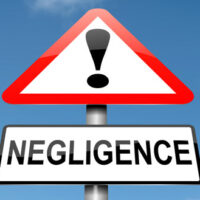Establishing Negligence in a Florida Auto Accident Case

An auto accident can be a life-changing event. Car accidents result in substantial medical expenses, lost wages, vehicle repair costs, pain and suffering, and many other losses and damages. Fortunately, in Florida, like in many other states, you may be entitled to financial compensation if you are involved in an auto accident. You can recover compensation if you can prove that the other party’s negligence caused your accident. Generally, negligence refers to a failure to act with a level of care that a reasonable individual would have exercised under the same circumstances.
Establishing negligence in a Florida car accident case entails proving certain elements. If you’ve been in a Florida car accident, it is crucial that you understand the elements you need to prove in your case in order to establish negligence. Below, we discuss the essential elements of establishing negligence in a Florida auto accident case.
- Duty of Care
In a Florida car accident case, you must first show that the defendant owed you a duty of care. Usually, establishing this element is easy in a car accident case, as all drivers are obligated to operate their vehicles reasonably and safely to prevent harm to other road users. Drivers have several obligations, including obeying traffic laws, avoiding drunk driving, and avoiding distractions.
- Breach of Duty of Care
After establishing a duty of care, you must show that the defendant breached that duty. This step entails showing that the defendant failed to meet the standard of care expected of a reasonably prudent person under the same circumstances. Some examples of behaviors that may be considered a breach of duty or care in an auto accident case include;
- Driving over the speed limit
- Driving while distracted
- Driving while drunk
- Running red lights or stop signs
- Driving while tired
- Failing to yield the right of way
- Ignoring traffic signals
- Tailgating
- Causation
The third element a plaintiff must establish in a Florida car accident case is causation. This entails showing a direct link between your injury and the defendant’s breach of duty. Examples of types of evidence that can help you prove causation in a Florida car accident case include medical records, eyewitness testimony, pictures, videos, police reports, and expert witness testimony.
- Damages
Lastly, in a Florida auto accident case, you must show that you incurred damages due to the accident. If you did not suffer any damages in the accident, then there is no basis for payment. Damages can include, among others, physical injuries, medical expenses, lost wages, property damage, pain and suffering, and emotional distress. Providing sufficient evidence is essential for proving your damages. Examples of types of evidence that can help you establish your damage include medical records, medical bills, expert witness testimonies, pay stubs, employment records, and journals.
Comparative Negligence
Florida follows the comparative negligence law. Specifically, the state follows the modified comparative negligence rule. Under this rule, you can recover compensation in a car accident claim as long as you are not more than 50% to blame for your accident. However, if you are partially to blame for your accident, your compensation will be reduced in proportion to your percentage of fault.
Contact a Lakeland, FL, Car Accident Attorney
If you’ve suffered injuries in a Florida car accident, contacting an attorney should be one of your priorities. At Darla K. Snead, P.L., our skilled Lakeland car accident attorneys have experience representing accident victims and establishing negligence. We can help you prove all the elements of negligence and fight for the compensation you deserve. Contact us today to schedule a consultation.
